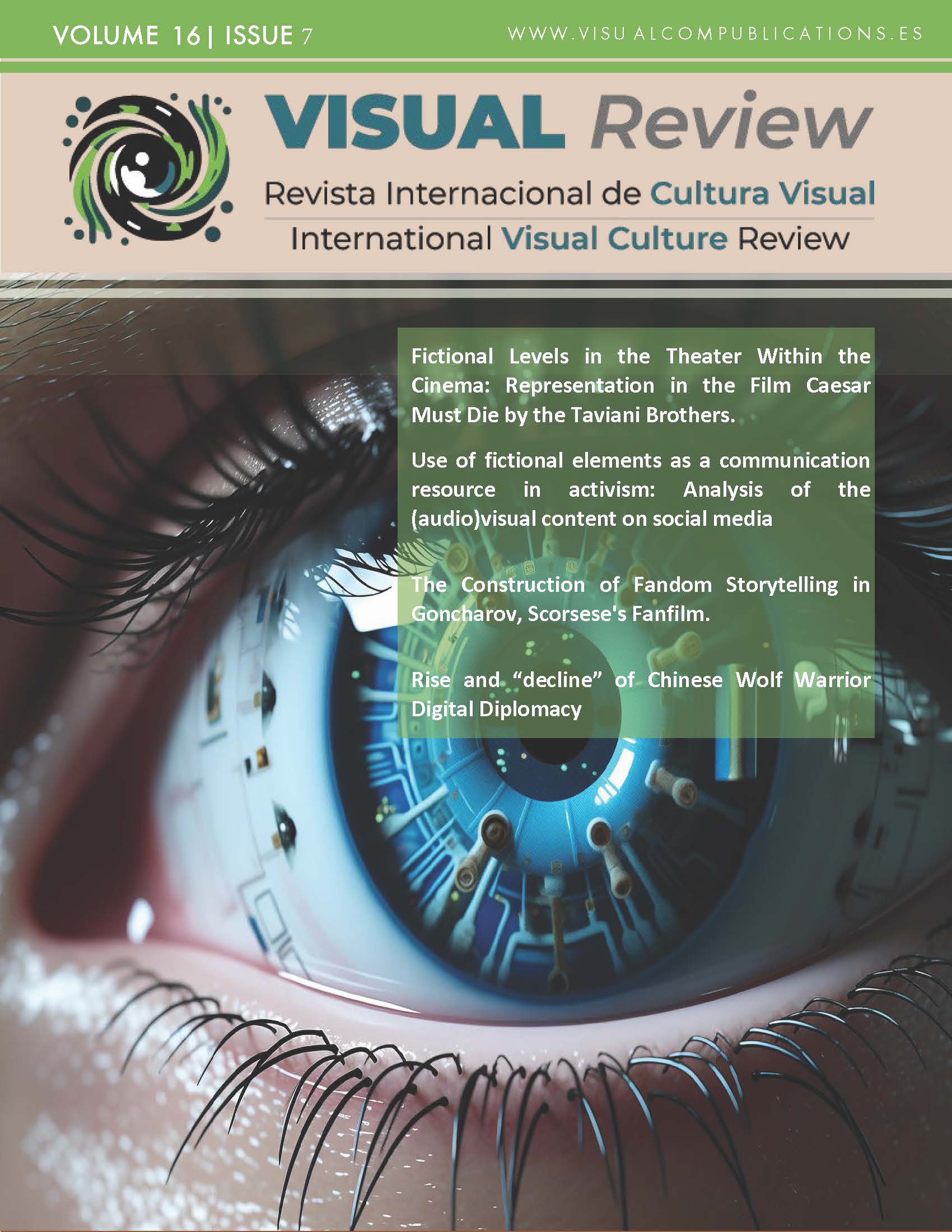Enhancing Commercial Competencies
Key Strategies and Tools
DOI:
https://doi.org/10.62161/revvisual.v16.5397Keywords:
Employability, Business growth, Human capital, Job skills, Professional development, Talent, Labour marketAbstract
The aim of this study is to examine the potential relationship between soft skills and professional performance, as well as to conduct a thorough statistical analysis of the main soft skills of workers in the commercial sector. The sample consists of 1654 participants from this sector. The results indicate that the sample can be categorised into four distinct homogeneous profiles of professional performance, and that the main soft skills analysed are interrelated and have a direct impact on professional performance. Finally, the results are interpreted with a focus on the realities of the business market.
Downloads
Global Statistics ℹ️
|
386
Views
|
295
Downloads
|
|
681
Total
|
|
References
Bloksgaard, L., & Prieur, A. (2021). Policing by social skills: the importance of empathy and appropriate emotional expressions in the recruitment, selection and education of Danish police officers. Policing and Society, 31(10), 1232–1247. https://doi.org/10.1080/10439463.2021.1881518 DOI: https://doi.org/10.1080/10439463.2021.1881518
Caputo, F., Cillo, V., Candelo, E. & Liu, Y. (2019). Innovating through digital revolution: The role of soft skills and Big Data in increasing firm performance. Management Decision, 57(8), 2032-2051. https://doi.org/10.1108/MD-07-2018-0833 DOI: https://doi.org/10.1108/MD-07-2018-0833
Cinque, M. (2016). Soft Skills in development in European countries. Tuning Academy Journal. DOI: https://doi.org/10.18543/tjhe-3(2)-2016pp389-427
Escamilla, R.; Segovia-Romo, A. & López, J.F. (2022). Soft skills in customer service: Sales area in automobile dealers. Contaduría y Administración, 67(2). doi:http://dx.doi.org/10.22201/fca.24488410e.2022.3172. DOI: https://doi.org/10.22201/fca.24488410e.2022.3172
González-Rico P, Lluch Sintes M. (2024). Empowering Soft Skills through Artificial Intelligence and Personalised Mentoring. Education Sciences; 14(7). https://doi.org/10.3390/educsci14070699 DOI: https://doi.org/10.3390/educsci14070699
Ibrahim, R., Boerhannoeddin, A. & Bakare, K.K. (2017). The effect of soft skills and training methodology on employee performance. European Journal of Training and Development, 41(4), 388-406. https://doi.org/10.1108/EJTD-08-2016-0066 DOI: https://doi.org/10.1108/EJTD-08-2016-0066
Kechagias, K. (2011). Teaching and Assessing Soft Skills. Retrieved July 20, 2024, from MASS Project: https://www.researchgate.net/profile/Behrouz_Ahmadi-Nedushan/post/Is_there_an_assessment_model_of _specifically_for_measuring_soft_skills_of_students_in_college_university/attachment/59d63a3079197b807799762 5/AS%3A405122485112832%401473600135834/doënload/Te
Klaus P. (2010). Communication breakdown. California Job Journal, 28, 1-9.
Krpálek, P.; Berková, K.; Kubisová, A.; Krelová, K.; Frendlovská, D. & Spiesová, D. (2021). Formation of professional competences and soft skills of Public Administration employees for sustainable professional development. Sustainability, 13. https://doi.org/10.3390/su13105533 DOI: https://doi.org/10.3390/su13105533
Marrero, O.; Mohamed, R.; Xifra. J. (2018). Habilidades blandas: necesarias para la formación integral del estudiante universitario. Rev. cient. ecociencia, 5, 1–18. https://doi.org/10.21855/ecociencia.50.144 DOI: https://doi.org/10.21855/ecociencia.50.144
Moreno, J. E. & Marcaccio, A. (2014). Perfiles profesionales y valores relativos al trabajo. Ciencias Psicológicas, 8(2), 129-138. DOI: https://doi.org/10.22235/cp.v8i2.897
Musicco, G. (2018). Soft skills & coaching: Engine of the new University in Europe. Rev. Univ. Europea, 29, 115-132.
Sethi, D. (2014). Executive Perceptions of Top Ten Soft Skills at Work: Developing These Through Saif. Retrieved July 19, 2024, from Indian Institute of Management: https://www.iimk.ac.in/websiteadmin/FacultyPublications/Working%20Papers/160abs.pdf
Purwanto, A. (2020). Effect of Hard Skills, Soft Skills, Organizational Learning and Innovation Capability on Islamic University Lecturers’ Performance. Systematic Reviews in Pharmacy.
Putra, A., Novitasari, D., Asbari, M., Purwanto, A., Iskandar, J., Hutagalung, D., & Yoyok, S. (2020). Examine relationship of soft skills, hard skills, innovation and performance: the mediation effect of organizational learning. International Journal of Science and Management Studies, 3(3). DOI: https://doi.org/10.51386/25815946/ijsms-v3i3p104
Robles, M. (2012). Executive Perceptions of the Top 10 Soft Skills Needed in Today’s workplace. Business and Professional Communication Quarterly , 454-455. DOI: https://doi.org/10.1177/1080569912460400
Rodríguez, A.; Cortés, A., & Val, S. (2019) Análisis de la mejora del nivel de empleabilidad de los universitarios mediante la mejora de competencias transversales y habilidades. Rev. Espa. Orient. Y Psicoped., 30(3), 102-119. https://doi.org/10.5944/reop.vol.30.num.3.2019.26275 DOI: https://doi.org/10.5944/reop.vol.30.num.3.2019.26275
Tang, K. N. (2018). The importance of soft skills acquisition by teachers in higher education institutions. Kasetsart Journal of Social Sciences, 41(1), 22–27. Retrieved from https://so04.tci-thaijo.org/index.php/kjss/article/view/229129 DOI: https://doi.org/10.1016/j.kjss.2018.01.002
Ummatqul, K. (2020), Soft Skills Development in Higher Education. Universal Journal of Educational Research, 8 (5), 1916 - 1925. DOI: 10.13189/ujer.2020.080528 DOI: https://doi.org/10.13189/ujer.2020.080528
Downloads
Published
How to Cite
Issue
Section
License
Copyright (c) 2024 VISUAL REVIEW. International Visual Culture Review / Revista Internacional de Cultura Visual

This work is licensed under a Creative Commons Attribution-NoDerivatives 4.0 International License.
Those authors who publish in this journal accept the following terms:
-
Authors retain copyright.
-
Authors transfer to the journal the right of first publication. The journal also owns the publishing rights.
-
All published contents are governed by an Attribution-NoDerivatives 4.0 International License.
Access the informative version and legal text of the license. By virtue of this, third parties are allowed to use what is published as long as they mention the authorship of the work and the first publication in this journal. If you transform the material, you may not distribute the modified work. -
Authors may make other independent and additional contractual arrangements for non-exclusive distribution of the version of the article published in this journal (e.g., inclusion in an institutional repository or publication in a book) as long as they clearly indicate that the work was first published in this journal.
- Authors are allowed and recommended to publish their work on the Internet (for example on institutional and personal websites), following the publication of, and referencing the journal, as this could lead to constructive exchanges and a more extensive and quick circulation of published works (see The Effect of Open Access).














